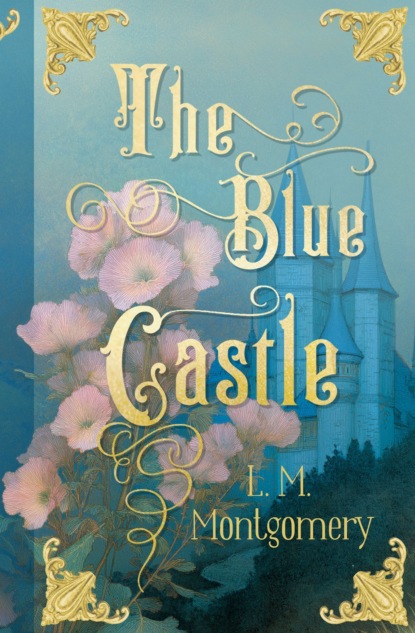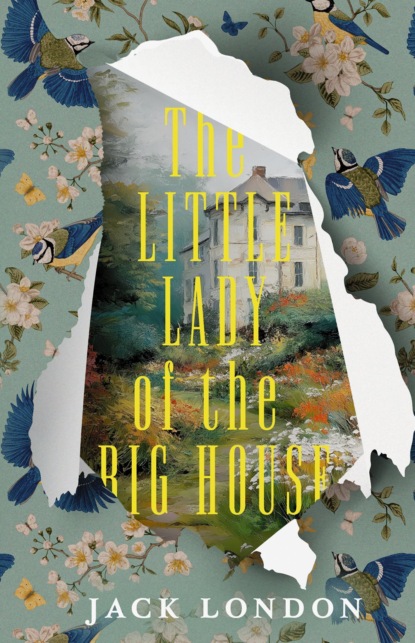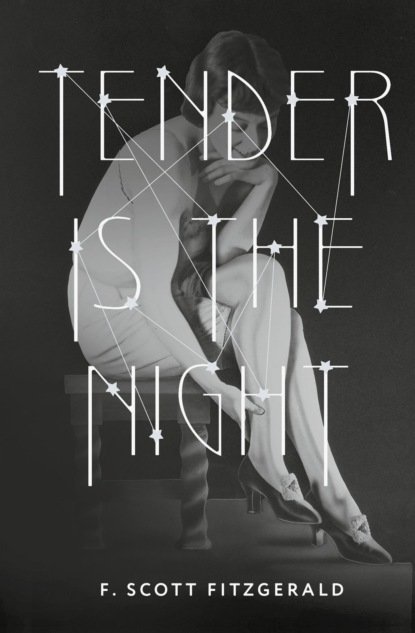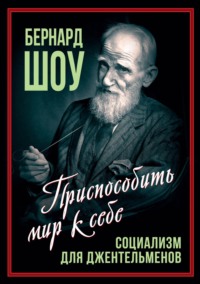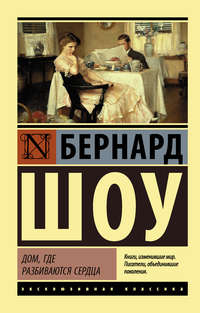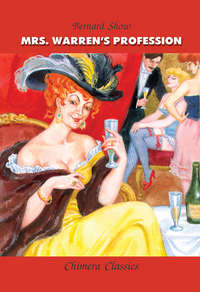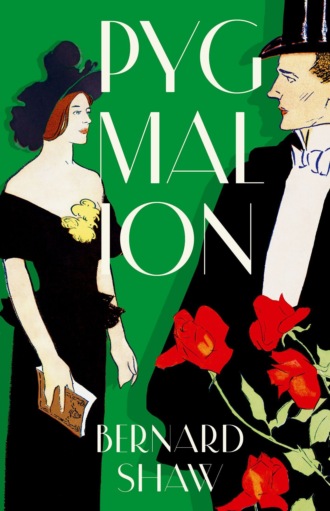
Полная версия
Pygmalion / Пигмалион
HIGGINS [looking critically at her] Oh no, I don't think so. Not any feelings that we need bother about. [Cheerily] Have you, Eliza?
LIZA. I got my feelings same as anyone else.
HIGGINS [to Pickering, reflectively] You see the difficulty?
PICKERING. Eh? What difficulty?
HIGGINS. To get her to talk grammar. The mere pronunciation is easy enough.
LIZA. I don't want to talk grammar. I want to talk like a lady.
MRS. PEARCE. Will you please keep to the point, Mr. Higgins. I want to know on what terms the girl is to be here. Is she to have any wages? And what is to become of her when you've finished your teaching? You must look ahead a little.
HIGGINS [impatiently] What's to become of her if I leave her in the gutter? Tell me that, Mrs. Pearce.
MRS. PEARCE. That's her own business, not yours, Mr. Higgins.
HIGGINS. Well, when I've done with her, we can throw her back into the gutter; and then it will be her own business again; so that's all right.
LIZA. Oh, you've no feeling heart in you: you don't care for nothing but yourself [she rises and takes the floor resolutely]. Here! I've had enough of this. I'm going [making for the door]. You ought to be ashamed of yourself, you ought.
HIGGINS [snatching a chocolate cream from the piano, his eyes suddenly beginning to twinkle with mischief] Have some chocolates, Eliza.
LIZA [halting, tempted] How do I know what might be in them? I've heard of girls being drugged by the like of you.
Higgins whips out his penknife; cuts a chocolate in two; puts one half into his mouth and bolts it; and offers her the other half.
HIGGINS. Pledge of good faith, Eliza. I eat one half you eat the other. [Liza opens her mouth to retort: he pops the half chocolate into it]. You shall have boxes of them, barrels of them, every day. You shall live on them. Eh?
LIZA [who has disposed of the chocolate after being nearly choked by it] I wouldn't have ate it, only I'm too ladylike to take it out of my mouth.
HIGGINS. Listen, Eliza. I think you said you came in a taxi.
LIZA. Well, what if I did? I've as good a right to take a taxi as anyone else.
HIGGINS. You have, Eliza; and in future you shall have as many taxis as you want. You shall go up and down and round the town in a taxi every day. Think of that, Eliza.
MRS. PEARCE. Mr. Higgins: you're tempting the girl. It's not right. She should think of the future.
HIGGINS. At her age! Nonsense! Time enough to think of the future when you haven't any future to think of. No, Eliza: do as this lady does: think of other people's futures; but never think of your own. Think of chocolates, and taxis, and gold, and diamonds.
LIZA. No: I don't want no gold and no diamonds. I'm a good girl, I am. [She sits down again, with an attempt at dignity].
HIGGINS. You shall remain so, Eliza, under the care of Mrs. Pearce. And you shall marry an officer in the Guards, with a beautiful moustache: the son of a marquis, who will disinherit him for marrying you, but will relent when he sees your beauty and goodness—
PICKERING. Excuse me, Higgins; but I really must interfere. Mrs. Pearce is quite right. If this girl is to put herself in your hands for six months for an experiment in teaching, she must understand thoroughly what she's doing.
HIGGINS. How can she? She's incapable of understanding anything. Besides, do any of us understand what we are doing? If we did, would we ever do it?
PICKERING. Very clever, Higgins; but not sound sense. [To Eliza] Miss Doolittle—
LIZA [overwhelmed] Ah – ah – ow – oo!
HIGGINS. There! That's all you get out of Eliza. Ah – ah – ow – oo! No use explaining. As a military man you ought to know that. Give her her orders: that's what she wants. Eliza: you are to live here for the next six months, learning how to speak beautifully, like a lady in a florist's shop. If you're good and do whatever you're told, you shall sleep in a proper bedroom, and have lots to eat, and money to buy chocolates and take rides in taxis. If you're naughty and idle you will sleep in the back kitchen among the black beetles, and be walloped by Mrs. Pearce with a broomstick. At the end of six months you shall go to Buckingham Palace in a carriage, beautifully dressed. If the King finds out you're not a lady, you will be taken by the police to the Tower of London, where your head will be cut off as a warning to other presumptuous flower girls. If you are not found out, you shall have a present of seven-and-sixpence to start life with as a lady in a shop. If you refuse this offer you will be a most ungrateful and wicked girl; and the angels will weep for you. [To Pickering] Now are you satisfied, Pickering? [To Mrs. Pearce] Can I put it more plainly and fairly, Mrs. Pearce?
MRS. PEARCE [patiently] I think you'd better let me speak to the girl properly in private. I don't know that I can take charge of her or consent to the arrangement at all. Of course I know you don't mean her any harm; but when you get what you call interested in people's accents, you never think or care what may happen to them or you. Come with me, Eliza.
HIGGINS. That's all right. Thank you, Mrs. Pearce. Bundle her off to the bath-room.
LIZA [rising reluctantly and suspiciously] You're a great bully, you are. I won't stay here if I don't like. I won't let nobody wallop me. I never asked to go to Bucknam Palace, I didn't. I was never in trouble with the police, not me. I'm a good girl—
MRS. PEARCE. Don't answer back, girl. You don't understand the gentleman. Come with me. [She leads the way to the door, and holds it open for Eliza].
LIZA [as she goes out] Well, what I say is right. I won't go near the king, not if I'm going to have my head cut off. If I'd known what I was letting myself in for, I wouldn't have come here. I always been a good girl; and I never offered to say a word to him; and I don't owe him nothing; and I don't care; and I won't be put upon; and I have my feelings the same as anyone else—
Mrs. Pearce shuts the door; and Eliza's plaints are no longer audible. Pickering comes from the hearth to the chair and sits astride it with his arms on the back.
PICKERING. Excuse the straight question, Higgins. Are you a man of good character where women are concerned?
HIGGINS [moodily] Have you ever met a man of good character where women are concerned?
PICKERING. Yes: very frequently.
HIGGINS [dogmatically, lifting himself on his hands to the level of the piano, and sitting on it with a bounce] Well, I haven't. I find that the moment I let a woman make friends with me, she becomes jealous, exacting, suspicious, and a damned nuisance. I find that the moment I let myself make friends with a woman, I become selfish and tyrannical. Women upset everything. When you let them into your life, you find that the woman is driving at one thing and you're driving at another.
PICKERING. At what, for example?
HIGGINS [coming off the piano restlessly] Oh, Lord knows! I suppose the woman wants to live her own life; and the man wants to live his; and each tries to drag the other on to the wrong track. One wants to go north and the other south; and the result is that both have to go east, though they both hate the east wind. [He sits down on the bench at the keyboard]. So here I am, a confirmed old bachelor, and likely to remain so.
PICKERING [rising and standing over him gravely] Come, Higgins! You know what I mean. If I'm to be in this business I shall feel responsible for that girl. I hope it's understood that no advantage is to be taken of her position.
HIGGINS. What! That thing! Sacred, I assure you. [Rising to explain] You see, she'll be a pupil; and teaching would be impossible unless pupils were sacred. I've taught scores of American millionairesses how to speak English: the best looking women in the world. I'm seasoned. They might as well be blocks of wood. I might as well be a block of wood. It's—
Mrs. Pearce opens the door. She has Eliza's hat in her hand. Pickering retires to the easy-chair at the hearth and sits down.
HIGGINS [eagerly] Well, Mrs. Pearce: is it all right?
MRS. PEARCE [at the door] I just wish to trouble you with a word, if I may, Mr. Higgins.
HIGGINS. Yes, certainly. Come in. [She comes forward]. Don't burn that, Mrs. Pearce. I'll keep it as a curiosity. [He takes the hat].
MRS. PEARCE. Handle it carefully, sir, please. I had to promise her not to burn it; but I had better put it in the oven for a while.
HIGGINS [putting it down hastily on the piano] Oh! thank you. Well, what have you to say to me?
PICKERING. Am I in the way?
MRS. PEARCE. Not at all, sir. Mr. Higgins: will you please be very particular what you say before the girl?
HIGGINS [sternly] Of course. I'm always particular about what I say. Why do you say this to me?
MRS. PEARCE [unmoved] No, sir: you're not at all particular when you've mislaid anything or when you get a little impatient. Now it doesn't matter before me: I'm used to it. But you really must not swear before the girl.
HIGGINS [indignantly] I swear! [Most emphatically] I never swear. I detest the habit. What the devil do you mean?
MRS. PEARCE [stolidly] That's what I mean, sir. You swear a great deal too much. I don't mind your damning and blasting, and what the devil and where the devil and who the devil—
HIGGINS. Really! Mrs. Pearce: this language from your lips!
MRS. PEARCE [not to be put off] – but there is a certain word I must ask you not to use. The girl has just used it herself because the bath was too hot. It begins with the same letter as bath. She knows no better: she learnt it at her mother's knee. But she must not hear it from your lips.
HIGGINS [loftily] I cannot charge myself with having ever uttered it, Mrs. Pearce. [She looks at him steadfastly. He adds, hiding an uneasy conscience with a judicial air] Except perhaps in a moment of extreme and justifiable excitement.
MRS. PEARCE. Only this morning, sir, you applied it to your boots, to the butter, and to the brown bread.
HIGGINS. Oh, that! Mere alliteration, Mrs. Pearce, natural to a poet.
MRS. PEARCE. Well, sir, whatever you choose to call it, I beg you not to let the girl hear you repeat it.
HIGGINS. Oh, very well, very well. Is that all?
MRS. PEARCE. No, sir. We shall have to be very particular with this girl as to personal cleanliness.
HIGGINS. Certainly. Quite right. Most important.
MRS. PEARCE. I mean not to be slovenly about her dress or untidy in leaving things about.
HIGGINS [going to her solemnly] Just so. I intended to call your attention to that [He passes on to Pickering, who is enjoying the conversation immensely]. It is these little things that matter, Pickering. Take care of the pence and the pounds will take care of themselves is as true of personal habits as of money. [He comes to anchor on the hearthrug, with the air of a man in an unassailable position].
MRS. PEARCE. Yes, sir. Then might I ask you not to come down to breakfast in your dressing-gown, or at any rate not to use it as a napkin to the extent you do, sir. And if you would be so good as not to eat everything off the same plate, and to remember not to put the porridge saucepan out of your hand on the clean tablecloth, it would be a better example to the girl. You know you nearly choked yourself with a fishbone in the jam only last week.
HIGGINS [routed from the hearthrug and drifting back to the piano] I may do these things sometimes in absence of mind; but surely I don't do them habitually. [Angrily] By the way: my dressing-gown smells most damnably of benzine.
MRS. PEARCE. No doubt it does, Mr. Higgins. But if you will wipe your fingers—
HIGGINS [yelling] Oh very well, very well: I'll wipe them in my hair in future.
MRS. PEARCE. I hope you're not offended, Mr. Higgins.
HIGGINS [shocked at finding himself thought capable of an unamiable sentiment] Not at all, not at all. You're quite right, Mrs. Pearce: I shall be particularly careful before the girl. Is that all?
MRS. PEARCE. No, sir. Might she use some of those Japanese dresses you brought from abroad? I really can't put her back into her old things.
HIGGINS. Certainly. Anything you like. Is that all?
MRS. PEARCE. Thank you, sir. That's all. [She goes out].
HIGGINS. You know, Pickering, that woman has the most extraordinary ideas about me. Here I am, a shy, diffident sort of man. I've never been able to feel really grown-up and tremendous, like other chaps. And yet she's firmly persuaded that I'm an arbitrary overbearing bossing kind of person. I can't account for it.
Mrs. Pearce returns.
MRS. PEARCE. If you please, sir, the trouble's beginning already. There's a dustman downstairs, Alfred Doolittle, wants to see you. He says you have his daughter here.
PICKERING [rising] Phew! I say! [He retreats to the hearthrug].
HIGGINS [promptly] Send the blackguard up.
MRS. PEARCE. Oh, very well, sir. [She goes out].
PICKERING. He may not be a blackguard, Higgins.
HIGGINS. Nonsense. Of course he's a blackguard.
PICKERING. Whether he is or not, I'm afraid we shall have some trouble with him.
HIGGINS [confidently] Oh no: I think not. If there's any trouble he shall have it with me, not I with him. And we are sure to get something interesting out of him.
PICKERING. About the girl?
HIGGINS. No. I mean his dialect.
PICKERING. Oh!
MRS. PEARCE [at the door] Doolittle, sir. [She admits Doolittle and retires].
Alfred Doolittle is an elderly but vigorous dustman, clad in the costume of his profession, including a hat with a back brim covering his neck and shoulders. He has well marked and rather interesting features, and seems equally free from fear and conscience. He has a remarkably expressive voice, the result of a habit of giving vent to his feelings without reserve. His present pose is that of wounded honor and stern resolution.
DOOLITTLE [at the door, uncertain which of the two gentlemen is his man] Professor Higgins?
HIGGINS. Here. Good morning. Sit down.
DOOLITTLE. Morning, Governor. [He sits down magisterially] I come about a very serious matter, Governor.
HIGGINS [to Pickering] Brought up in Hounslow. Mother Welsh, I should think. [Doolittle opens his mouth, amazed. Higgins continues] What do you want, Doolittle?
DOOLITTLE [menacingly] I want my daughter: that's what I want. See?
HIGGINS. Of course you do. You're her father, aren't you? You don't suppose anyone else wants her, do you? I'm glad to see you have some spark of family feeling left. She's upstairs. Take her away at once.
DOOLITTLE [rising, fearfully taken aback] What!
HIGGINS. Take her away. Do you suppose I'm going to keep your daughter for you?
DOOLITTLE [remonstrating] Now, now, look here, Governor. Is this reasonable? Is it fair to take advantage of a man like this? The girl belongs to me. You got her. Where do I come in? [He sits down again].
HIGGINS. Your daughter had the audacity to come to my house and ask me to teach her how to speak properly so that she could get a place in a flower-shop. This gentleman and my housekeeper have been here all the time. [Bullying him] How dare you come here and attempt to blackmail me? You sent her here on purpose.
DOOLITTLE [protesting] No, Governor.
HIGGINS. You must have. How else could you possibly know that she is here?
DOOLITTLE. Don't take a man up like that, Governor.
HIGGINS. The police shall take you up. This is a plant – a plot to extort money by threats. I shall telephone for the police [he goes resolutely to the telephone and opens the directory].
DOOLITTLE. Have I asked you for a brass farthing? I leave it to the gentleman here: have I said a word about money?
HIGGINS [throwing the book aside and marching down on Doolittle with a poser] What else did you come for?
DOOLITTLE [sweetly] Well, what would a man come for? Be human, governor.
HIGGINS [disarmed] Alfred: did you put her up to it?
DOOLITTLE. So help me, Governor, I never did. I take my Bible oath I ain't seen the girl these two months past.
HIGGINS. Then how did you know she was here?
DOOLITTLE [“most musical, most melancholy”] I'll tell you, Governor, if you'll only let me get a word in. I'm willing to tell you. I'm wanting to tell you. I'm waiting to tell you.
HIGGINS. Pickering: this chap has a certain natural gift of rhetoric. Observe the rhythm of his native woodnotes wild. “I'm willing to tell you: I'm wanting to tell you: I'm waiting to tell you.” Sentimental rhetoric! That's the Welsh strain in him. It also accounts for his mendacity and dishonesty.
PICKERING. Oh, please, Higgins: I'm west country myself. [To Doolittle] How did you know the girl was here if you didn't send her?
DOOLITTLE. It was like this, Governor. The girl took a boy in the taxi to give him a jaunt. Son of her landlady, he is. He hung about on the chance of her giving him another ride home. Well, she sent him back for her luggage when she heard you was willing for her to stop here. I met the boy at the corner of Long Acre and Endell Street.
HIGGINS. Public house. Yes?
DOOLITTLE. The poor man's club, Governor: why shouldn't I?
PICKERING. Do let him tell his story, Higgins.
DOOLITTLE. He told me what was up. And I ask you, what was my feelings and my duty as a father? I says to the boy, “You bring me the luggage,” I says—
PICKERING. Why didn't you go for it yourself?
DOOLITTLE. Landlady wouldn't have trusted me with it, Governor. She's that kind of woman: you know. I had to give the boy a penny afore he trusted me with it, the little swine. I brought it to her just to oblige you like, and make myself agreeable. That's all.
HIGGINS. How much luggage?
DOOLITTLE. Musical instrument, Governor. A few pictures, a trifle of jewelry, and a bird-cage. She said she didn't want no clothes. What was I to think from that, Governor? I ask you as a parent what was I to think?
HIGGINS. So you came to rescue her from worse than death, eh?
DOOLITTLE [appreciatively: relieved at being understood] Just so, Governor. That's right.
PICKERING. But why did you bring her luggage if you intended to take her away?
DOOLITTLE. Have I said a word about taking her away? Have I now?
HIGGINS [determinedly] You're going to take her away, double quick. [He crosses to the hearth and rings the bell].
DOOLITTLE [rising] No, Governor. Don't say that. I'm not the man to stand in my girl's light. Here's a career opening for her, as you might say; and—
Mrs. Pearce opens the door and awaits orders.
HIGGINS. Mrs. Pearce: this is Eliza's father. He has come to take her away. Give her to him. [He goes back to the piano, with an air of washing his hands of the whole affair].
DOOLITTLE. No. This is a misunderstanding. Listen here—
MRS. PEARCE. He can't take her away, Mr. Higgins: how can he? You told me to burn her clothes.
DOOLITTLE. That's right. I can't carry the girl through the streets like a blooming monkey, can I? I put it to you.
HIGGINS. You have put it to me that you want your daughter. Take your daughter. If she has no clothes go out and buy her some.
DOOLITTLE [desperate] Where's the clothes she come in? Did I burn them or did your missus here?
MRS. PEARCE. I am the housekeeper, if you please. I have sent for some clothes for your girl. When they come you can take her away. You can wait in the kitchen. This way, please.
Doolittle, much troubled, accompanies her to the door; then hesitates; finally turns confidentially to Higgins.
DOOLITTLE. Listen here, Governor. You and me is men of the world, ain't we?
HIGGINS. Oh! Men of the world, are we? You'd better go, Mrs. Pearce.
MRS. PEARCE. I think so, indeed, sir. [She goes, with dignity].
PICKERING. The floor is yours, Mr. Doolittle.
DOOLITTLE [to Pickering] I thank you, Governor. [To Higgins, who takes refuge on the piano bench, a little overwhelmed by the proximity of his visitor; for Doolittle has a professional flavor of dust about him]. Well, the truth is, I've taken a sort of fancy to you, Governor; and if you want the girl, I'm not so set on having her back home again but what I might be open to an arrangement. Regarded in the light of a young woman, she's a fine handsome girl. As a daughter she's not worth her keep; and so I tell you straight. All I ask is my rights as a father; and you're the last man alive to expect me to let her go for nothing; for I can see you're one of the straight sort, Governor. Well, what's a five pound note to you? And what's Eliza to me? [He returns to his chair and sits down judicially].
PICKERING. I think you ought to know, Doolittle, that Mr. Higgins's intentions are entirely honorable.
DOOLITTLE. Course they are, Governor. If I thought they wasn't, I'd ask fifty.
HIGGINS [revolted] Do you mean to say, you callous rascal, that you would sell your daughter for 50 pounds?
DOOLITTLE. Not in a general way I wouldn't; but to oblige a gentleman like you I'd do a good deal, I do assure you.
PICKERING. Have you no morals, man?
DOOLITTLE [unabashed] Can't afford them, Governor. Neither could you if you was as poor as me. Not that I mean any harm, you know. But if Liza is going to have a bit out of this, why not me too?
HIGGINS [troubled] I don't know what to do, Pickering. There can be no question that as a matter of morals it's a positive crime to give this chap a farthing. And yet I feel a sort of rough justice in his claim.
DOOLITTLE. That's it, Governor. That's all I say. A father's heart, as it were.
PICKERING. Well, I know the feeling; but really it seems hardly right—
DOOLITTLE. Don't say that, Governor. Don't look at it that way. What am I, Governors both? I ask you, what am I? I'm one of the undeserving poor: that's what I am. Think of what that means to a man. It means that he's up agen middle class morality all the time. If there's anything going, and I put in for a bit of it, it's always the same story: “You're undeserving; so you can't have it.” But my needs is as great as the most deserving widow's that ever got money out of six different charities in one week for the death of the same husband. I don't need less than a deserving man: I need more. I don't eat less hearty than him; and I drink a lot more. I want a bit of amusement, cause I'm a thinking man. I want cheerfulness and a song and a band when I feel low. Well, they charge me just the same for everything as they charge the deserving. What is middle class morality? Just an excuse for never giving me anything. Therefore, I ask you, as two gentlemen, not to play that game on me. I'm playing straight with you. I ain't pretending to be deserving. I'm undeserving; and I mean to go on being undeserving. I like it; and that's the truth. Will you take advantage of a man's nature to do him out of the price of his own daughter what he's brought up and fed and clothed by the sweat of his brow until she's growed big enough to be interesting to you two gentlemen? Is five pounds unreasonable? I put it to you; and I leave it to you.
HIGGINS [rising, and going over to Pickering] Pickering: if we were to take this man in hand for three months, he could choose between a seat in the Cabinet and a popular pulpit in Wales.
PICKERING. What do you say to that, Doolittle?
DOOLITTLE. Not me, Governor, thank you kindly. I've heard all the preachers and all the prime ministers – for I'm a thinking man and game for politics or religion or social reform same as all the other amusements – and I tell you it's a dog's life anyway you look at it. Undeserving poverty is my line. Taking one station in society with another, it's – it's – well, it's the only one that has any ginger in it, to my taste.




